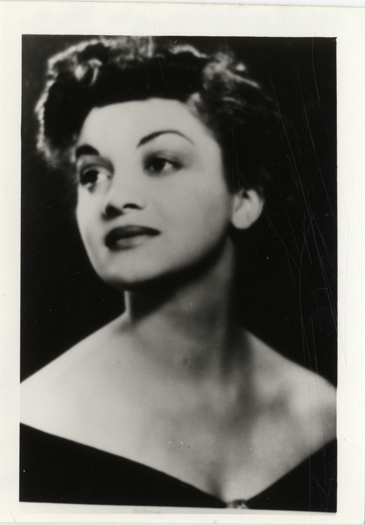
The Roxborough family had protected their young from the damage prejudice inflicts, but when their accomplished, hard-driving daughter entered the mainstream of American life in Ann Arbor, she didn’t have the usual emotional defenses and thus was more vulnerable, more easily scarred.
Jean Blackwell Hutson, a peer of Roxborough’s at the University, who later became Chief of the Schomburg Center for Research in Black Culture, part of the New York Public Library system in Harlem, described the psychological atmosphere of which white students were unaware: “I remember the bigotry of Dean Alice Lloyd. She pretended to be concerned about Negro students and wrote kind letters to parents, but she stood firm in holding the line [against integration of the dorms].” Hutson admits that Roxborough seemed like a snob to her then: “Elsie had been reared like a princess and was accustomed to having her own way.” Her snobbery produced a tension between Roxborough and other blacks on campus who had not enjoyed her privileges. To white students she was an exotic, not like other Negroes yet not like themselves either. A hothouse flower, she was rudely awakened when she went on academic probation her first semester. She flunked a science and a history course. But by her junior year she had adapted to the rigors of the University, raised her grades, and plotted her future.
In the fall of 1935 the Theatre Guild of Detroit produced her play Wanting at the Frogs Club at Beaubien and Madison. Her sister helped out by acting in it as an artist, Dodsie, best friend of the heroine. In February 1936, The Crisis had a two-column photo of Roxborough, captioned “Young Playwright,” to publicize Wanting. On 20 March 1936 the play was presented in Chicago but received a poor review in the Chicago Defender from Enoc P. Waters, Jr., who wrote:
That the play was a disappointment to a majority of the audience was indicated by the unfavorable comments of many as they left the building.
Beginning 50 minutes behind schedule, the long, loosely woven play… told the story of Russell Terrill, a young socialite who, tiring of [her] vivacious artists’ group… seeks… experimental social service work. Here she contacts Sandy, a habitual drunken widower with a daughter and some… communistic notions. There follows a period of sordid infatuation during which she takes up residence in Sandy’s quarters. The spell is broken when Sandy becomes abusive and deserts her…. The play was not of the type in which a Race [Negro] cast could be at its best. Plans to go cycling in Italy, the idea of one owning a stable of ponies, or of one making another a present of a yacht becomes ridiculous in the mouths of Race actors and actresses because these situations are so far from reality.
Roxborough submitted substantially the same play to the Hopwood Minor Drama contest in April 1936, but with a new title, A World of Difference. It placed third of those entered. Arthur Miller won first prize. One judge called her play “artificial.” He was “bored by it.” Another considered “all contestants… not up to last year’s entries,” and the third commented, “No plays revealed any indications of talent.”
Perhaps Roxborough was trying to say something in her play that neither her black audience in Chicago nor the white Hopwood critics realized. She was showing a slice of life as she knew it. The play was rooted in a familiar, elite group of black people who had the same money, advantages, interests, vices, and ambitions as white civilization that already knows luxury does not bring happiness. The world-weary lead with the androgynous name, Russell Terrill, “dressed in long, white satin” though she is also described as “tomboyish in appearance,” is a mocking and ambivalent self-portrait that foreshadows Roxborough’s own rejection of the caste comforts she had enjoyed as a child.
On 25 April 1936 Roxborough’s play Flight was produced in Detroit. Her pretty friend Ruth Webb played a white woman who persuades a golden-haired Creole, Mimi Daquin, disillusioned with her own people, to flee from them and find lasting happiness with others. It may be prophetic that both plays, Flight and Wanting/A World of Difference, feature heroines who leave the group they are born into for a radically different one. Roxborough, a romantic, believed in the pursuit of happiness, but hers, she felt, would lie among whites. There would always be a low ceiling above her if she tried to rise in the black world – as the writers of the Harlem Renaissance had discovered when white critics patronized and ghettoized even their finest work. Nor could she think of marriage and children, for children might turn out colored, and impede her progress in the dream world her talent seemed to make accessible.
In the same season Roxborough crafted her first play, fall of 1935, Langston Hughes’s play Mulatto opened at the Vanderbilt Theatre on Broadway. It dramatized the agony of a loyal son when he sees all the privileges of American citizenship open to one parent and denied to the other. Mulatto did not provide a solution to the racial dilemma. It claimed that blacks try to give love and tenderness to whites, who receive such affection covertly but deny it overtly. Unlike Roxborough’s plays it offered blacks no hope for social mobility across the color line.
